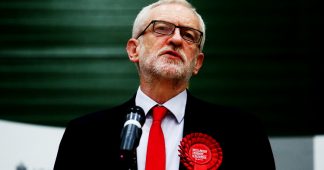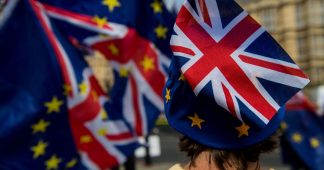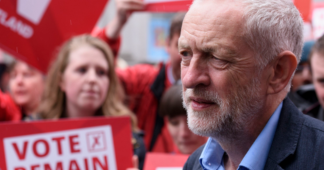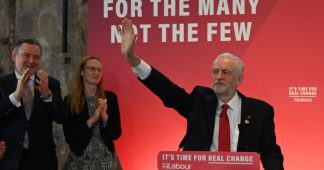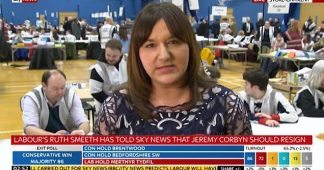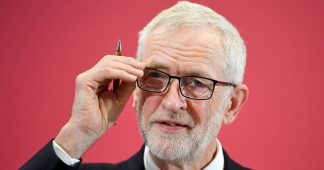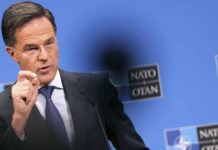16 December 2020
The past few years in British politics have certainly been eventful. A series of blows distracted and divided the establishment and its opinion-makers, forcing them onto the defensive. After the financial crash and the Scottish referendum, the pace quickened with the 2015 election, Jeremy Corbyn’s victory as leader of a fast-expanding Labour Party, the shock of the Brexit result, three years of parliamentary crisis and two more elections. Now, with the backroom Brexiteers ousted from Downing Street and Starmer speeding up the purge of the Labour Party, the ruling bloc is back on the offensive. How far and fast it can proceed across the uneven terrain of pandemic, recession and Brexit remains to be seen. For the forces unleashed since 2008 are still in flux.
Take Labour. The balance of forces within the party confronted Corbyn with a huge problem from the start. At Westminster, the left within the Parliamentary Labour Party was the weakest it had ever been; a large rump of residue New Labour MPs still ruled the roost. To say that most of them loathed Corbyn would be an understatement. Two attempts to remove him failed miserably. Then came the 2017 election, which saw a Labour vote higher than the last two achieved by Blair, depriving May of her majority. Many party officials and MPs were hoping for a crushing Labour defeat. Their disappointment could be seen on their faces. The BBC and Guardian were equally distressed. How could this have happened? An informal agreement was reached. Everything possible must be done to make sure Corbyn was defeated. It was. He was.
I’ve argued before that Labour should have stuck to the line that the referendum result had to be respected, adding that since it was not of their making, the government that had called for it should implement it and that Labour would henceforth abstain on the issue. This would have been a coherent, readily understandable position. May would have pushed through a far softer Brexit than the one now on offer and the next general election would have been fought on other issues, with Labour able to build on its advances in 2017.
That this did not happen was due not just to establishment pressure but to divisions within the Labour Left. The weakest link turned out to be Corbyn’s supposedly loyal ally and Shadow Chancellor. But John McDonnell – hailed by the soft left as ‘the most radical politician of his generation’ (see Jeremy Gilbert in OpenDemocracy, Owen Jones in the Guardian, James Butler in the LRB) – had already shown his colours at the time of the Manchester bombing in the run-up to the 2017 election. Corbyn went with his political instincts, condemning the attacks while pointing out that they were not unconnected to Britain’s unending wars in the Middle East. McDonnell was scared that breaking the bipartisan taboo on foreign policy would see Labour crucified in the media, losing them swathes of support. Private and public polling proved the opposite – a majority of voters thought Corbyn was right. The media quickly buried the issue.
The same knee-jerk conformism saw McDonnell and Diane Abbott, Corbyn’s Shadow Home Secretary, join with the Labour right in dragging out the Brexit process, blocking bill after bill in the Commons. Abbott, half-jokingly, referred to Corbyn as ‘Ramsay McCorbyn’ for suggesting abstention on the May agreement. But it was never ‘Ramsay McDonnell’ for caving in to the well-funded Remainer lobby – led, of course, by Keir Starmer, whose appointment as Shadow Brexit Secretary was another sign of the weakness of the left. As a result, Labour had no real response when Boris Johnson took over as Tory leader in 2019. His speech outside 10 Downing Street was clear, coherent, determined. No more dilly-dallying. He would respect the will of the voters and take the UK out of the EU. Disastrously, Corbyn’s closest colleagues began playing around with notions of an unelected national-government coalition to stop Brexit. This was coupled with a Guardian–BBC barrage against Corbyn, insinuating he was an anti-Semite; what they really meant was that he supported Palestinian aspirations to statehood and opposed the US–UK neo-imperial wars in the Middle East. More effective with the voters, a Tory social-media campaign targeted him as a traitor. It was a no-holds-barred blitz to finish Corbyn off. They’ve come close.
Starmer was duly elected Labour leader by 56 per cent of a demoralized membership, on a promise to ‘unify the party’. Though he prefers to proceed by stealth, his strategy is transparent. Born in 1962 to a working-class family in South London, Starmer made his name as a barrister at the liberal Doughty Street Chambers and supposedly brought a human-rights background to his appointment under Brown as Director of Public Prosecutions. But the rights protected were mainly those of police and spies. Starmer ruled not to prosecute the police killers of Jean Charles de Menezes or Ian Tomlinson, or the MI5 and MI6 officers accused of torture in Bagram and elsewhere. Meanwhile he showed up during the all-night trials of those arrested in the 2011 London riots to praise the judges for their harsh sentencing. His office notoriously fast-tracked the extradition of Julian Assange, warning Swedish prosecutor Marianne Ny, ‘Don’t you dare get cold feet!!’
When he stepped down in 2013, Starmer was awarded a KCB for his efforts and offered the safe Labour seat of Holborn & St Pancras by Ed Miliband. He was part of the first failed attempt to oust Corbyn in July 2016, then stepped smoothly back into the Shadow Cabinet three months later to run the block-Brexit campaign that helped seal Labour’s fate. Once he’d won the leadership, he told members it was time to accept the Brexit result.
Starmer is not bothering to position himself with the voters. In a two-party system, he calculates that, sooner or later, exhaustion with the Tories means it will be his turn. Instead, he is trying to win the establishment’s favour – to prove he’ll be a safe pair of hands. This is why members of his claque – A Rawnsley and T Helm in the Observer, R Behr and P Toynbee in the Guardian, S Bush in the tabloidized New Statesman, which ran a typically tacky cover cartoon of its hero as a knight on a white horse – have been relentlessly parroting the same soundbites: ‘under new management’, ‘serious’, ‘professional’, ‘capable’, ‘competent’, ‘responsible’, ‘sober’. All qualities on display in October, when Starmer ran over a Deliveroo cyclist while reversing his SUV at a busy junction, en route to his tailor, and made off before the ambulance could arrive. (The Guardian tactfully downplayed the story. The right-wing press and local papers went big.)
Above all, being ‘serious’ means that only 110 per cent conformism to neo-imperial principles will do. The Tory-voting Jewish Board of Deputies – if not the hyper-corrupt, hard-right Netanyahu himself – was given veto power over Labour foreign policy. A cleansing of the party was called for and Starmer would be Cleanser-in-Chief. One of his first acts was to impose a second-rank Blairite apparatchik, David Evans, as general secretary – a yes man from the 1990s who’d made his money creaming ‘consultancy’ fees from Labour councils. Next came Rebecca Long-Bailey, Starmer’s rival for the leadership and grudgingly permitted a place in his Shadow Cabinet. To applause from the claque, she was sacked for retweeting a criticism of Israeli police techniques – a welcome sign, Rawnsley crowed in the Observer, that Starmer’s ‘unity’ would be on his own terms.
But the real feather in Starmer’s cap would be expelling Corbyn from the party. It was no secret that his office was mulling how best to use the report on anti-Semitism by the EHRC, a government-funded quango, against him. The report itself contained disappointingly little evidence. Instead, Evans was set in motion against Corbyn’s mild response to it, which condemned all anti-Semitism, highlighted the report’s finding that handling it in the party had improved under his watch, noted that opponents had over-stated its scale for political reasons and hoped that, though he didn’t accept all its findings, the report’s recommendations would be speedily implemented. For these innocuous sentiments, Evans suspended Corbyn from the party that same day (an NEC member later briefed that it was Starmer who made the decision).
A wave of outrage from local party branches was met by Evans with a ruling that motions in support of Corbyn would be out of order, along with any criticisms of the EHRC. His office duly suspended party members in Bristol West who were calling for Corbyn to be reinstated. Deputy leader Angela Rayner – who not so long ago was insisting on the BBC’s Newsnight that Corbyn had fought anti-Semitism and racism all his life – was now calling his comment ‘totally unacceptable’ and threatening that she was ready to suspend ‘thousands and thousands’. Labour-left MPs, constituency parties and members could at that point have resigned en masse, welcoming the freedom to challenge Starmer’s project from the left. They didn’t. Instead, Corbyn came under massive pressure from his closest allies to apologize – unity above all. He backed down, issuing a ‘clarification’.
On 17 November, a sub-committee of Labour’s National Executive, beyond Starmer’s control, reinstated Corbyn’s membership. Starmer angrily declared the next day that Corbyn would still be excluded from the Parliamentary Party and could not sit on the Labour benches. The upshot has been a further wave of protests from local parties – Liverpool, London, Edinburgh, Penrith, Newcastle, Bolton, Cardiff, Hastings, Hull, Carlisle. To date, a total of 80 constituency parties have defied the ban on discussing Corbyn’s suspension, passed motions of solidarity with him, or hit out at ‘diktats’ from Central Office about what party meetings could discuss. Among them are thirty constituency parties that nominated Starmer earlier this year. Fourteen National Executive Committee members have signed a letter criticizing the leader and union leaders – UNITE, the Communication Workers, the Fire Brigades – are debating withholding funds.
What’s clear is that Starmer’s purge is neither competent, professional, lawyerly or sober, but ill-considered, clumsily executed and open to legal challenge. Corbyn’s suspension was leaked to the media before he was informed of it, issued without stating what rule he had broken, overturned by the NEC panel and then unilaterally reinstated, at PLP level, by the leader’s political intervention in an internal disciplinary process – contrary to the recommendations of the EHRC, which Starmer and Evans had insisted must be followed. Starmer has stumbled into a trap of his own making. Although the November 2020 NEC elections gave him a majority (21 of 39 members, up from 18), allowing him to select parliamentary candidates and prosecute his witch-hunt more freely, it will take a rule change and perhaps a conference vote (not due till September 2021) to establish the new disciplinary machinery the EHRC wants. Any moves against Corbyn under the old system would be illegitimate according to Starmer’s own pronouncements.
Meanwhile, many of those now being suspended for criticizing the leader’s factional warfare, supposedly waged in the name of anti-anti-Semitism, are Jewish themselves. They include the veteran Jewish Voice for Labour activist Naomi Wimborne-Idrissi and the socialist scholar Moshé Machover, founder of the Israeli group Matzpen, whom Evans’s office has accused of attending a Palestine solidarity demonstration. (Machover had been expelled in 2017, but was readmitted after an international outcry.) Starmer will soon have evicted more Jews from the Labour Party than any predecessor. The sign boards are already up: no non-Zionist Jews welcome. Yet Kenneth Stern, author of the controversial IHRA ‘working definition’ of anti-Semitism, has himself warned against using the definition to say that ‘anti-Zionist expressions are inherently anti-Semitic and must be suppressed’. The latest twist: two East London constituency parties have forbidden motions on a charity cycle ride to raise funds for Palestinian children, citing Evans’s orders.
At the start of 2020, many voted for Starmer in the half-hope that he would ‘avoid excesses’ but keep the bulk of the social-democratic programme established under Corbyn and McDonnell. But he has already ditched the ‘Ten Pledges’ of his leadership campaign, as he boasted in an October interview with Rawnsley and Helm in the Observer. Just like Blair and Brown, he offers no serious opposition to Conservative policies and sucks up to Washington. Then, it was Iraq and Afghanistan. Now, mutatis mutandis, it is China. In July Starmer met up with US Secretary of State Pompeo to reassure him that Labour was back on the rails. As proof, he told Pompeo that Britain needed to be harder on China, not just banning Huawei’s 5G technology but imposing sanctions on Chinese officials suspected of human-rights abuses. But these are different times. Politics are much more volatile than they were in the 90s and there are signs of opposition.
From a tiny acorn, etc., or will the current Labour membership rebellion fizzle out? A lot will depend on the actions of the Socialist Campaign Group of left-wing MPs. In mid-November, only 18 of the 34 SCG members signed a call for Corbyn’s suspension to be revoked. Some of them are advising Corbyn to grovel and grovel till he’s fully reinstated. That would be a mistake, for the aim of his enemies is to destroy his standing as an honest politician. It will weaken, not strengthen the left, inside or outside the Labour Party. There are three years left before the next general elections. An Independent Labour Party with even half a dozen MPs and a membership base of perhaps 50,000 – that number have left already since Starmer took over – could mark a real advance. New Labourism failed the test in Scotland. It has lost the North and will not succeed indefinitely in Wales. The Corbyn moment of 2017 is very unlikely to be repeated inside the Labour Party itself. It’s a broken mirror.
Corbyn himself carries on as before, zooming from one online conference to another, defending the Palestinian cause, opposing US foreign policy, insisting on nationalizing the utilities and reversing NHS privatizations. His newly announced Peace and Justice Project is a positive move; amid the winter gloom of Starmer and Covid, a sniff of spring. It is a multi-issue initiative, open to those inside and outside the Labour Party, in the UK and abroad; over 20,000 people have signed up already. There will be teething troubles, no doubt, but the creation of a new political platform and online movement is a step forward. Corbyn is a well-known fan of Shelley, and as a counter to the outpourings of well-known rodents – the BBC’s Laura Kuenssberg as well as Rawnsley, Behr, etc. – who have joyfully climbed back onboard HMS Labour, the concluding words of Prometheus Unbound seem to be serving him well: ‘Neither to change, nor falter, nor repent.’
Published at newleftreview.org
